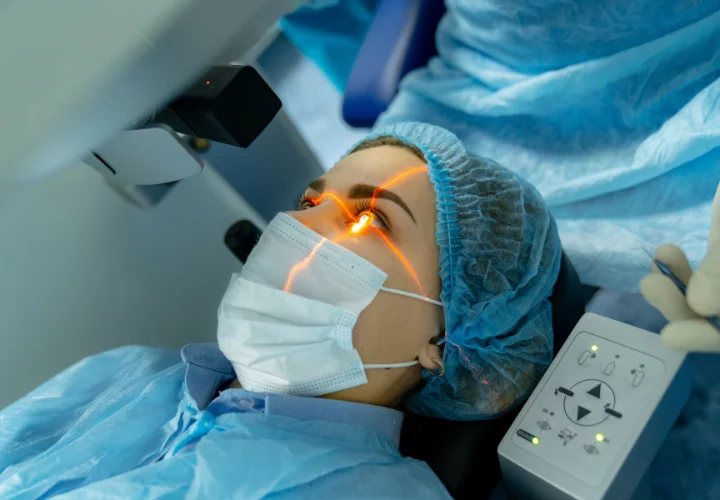Laser eye surgery is considered very helpful in treating various eye conditions and recovering vision quality. LASIK is one such example of laser surgery that has become exceedingly popular for corrective surgeries. Laser eye surgery uses laser technology to change the shape of the eye surface to correct many medical conditions. When done successfully, the procedure can help improve vision and other conditions. Most eye super speciality hospital provide this option to their patients.
Here are a few common conditions that can be improved using laser surgery are:
- Myopia (Near-sightedness): This eye condition is caused by a refractive error which makes objects in the distance blurry and difficult to see.
- Hyperopia (Farsightedness): In this case, things far away can be seen clearly but close objects are blurry.
- Astigmatism: It is a common vision problem caused by an error in the shape of the cornea and is marked by symptoms like blurry vision and difficulty seeing at night.
Laser surgery is one of the most prevalent and important procedures to regain vision. Here’s everything you need to learn about laser eye surgery:
What are the Types of Procedures Available?
The three most common types of laser eye surgery are LASIK (Laser-Assisted In Situ Keratomileusis), PRK (Photorefractive Keratectomy) and SMILE. In LASIK one laser is used to create a thin flap on the cornea and another reshapes the cornea, while PRK involves removing the outer layer of the cornea before reshaping it. In SMILE, the cornea is reshaped through a small incision that seals itself off after the procedure.
What is the Surgery Process Like?
An excimer laser is used to reshape the surface of the cornea by vaporising it with pulses of laser directed at it. The surgery is performed under local anaesthetic eye drops and requires about 5 minutes per eye, including a minute each to reshape the cornea.
Who is Eligible For this Surgery?
Multiple factors determine the eligibility of a patient for laser eye surgery. A few of them are thin corneas, stable glasses prescription, large pupils or dry eyes. Laser surgery is also not recommended for individuals who suffer from severe irregular astigmatism or play any contact sports. Alongside, people with autoimmune or other conditions that deter healing are also not advised for this type of surgery.
What are the Risks Involved?
Laser Surgery may involve a few risks and possible complications. In many cases, it has been observed that patients face issues like dry eyes, glares, halos, eye pain, sensitivity to light and in extreme cases, loss of vision.
How Long is the Recovery Period?
The surgery has a relatively short recovery period of one to three days. Along with this an antibiotic eye drop must be used at regular time intervals. To prevent rubbing the eye, you must wear a protective eye shield at all times.
As the best eye hospital in Nagercoil, our team of experts are committed to providing you with the utmost and individual care. If you have been recommended to go for laser eye surgery by your ophthalmologist, then contact us for more information today!


